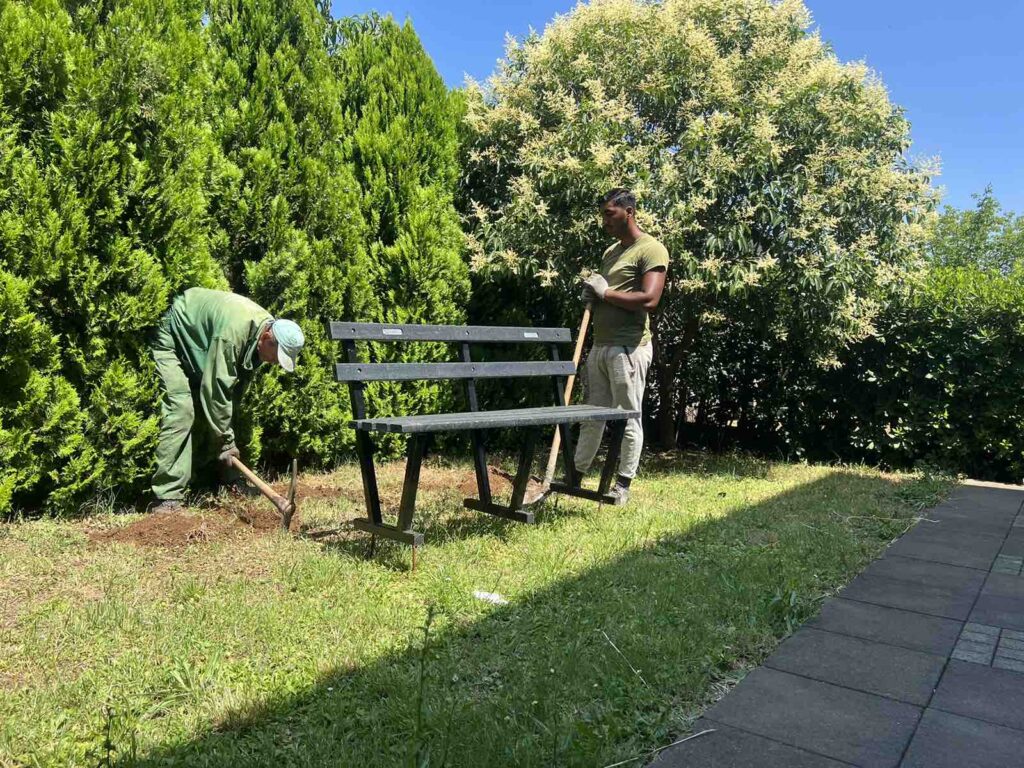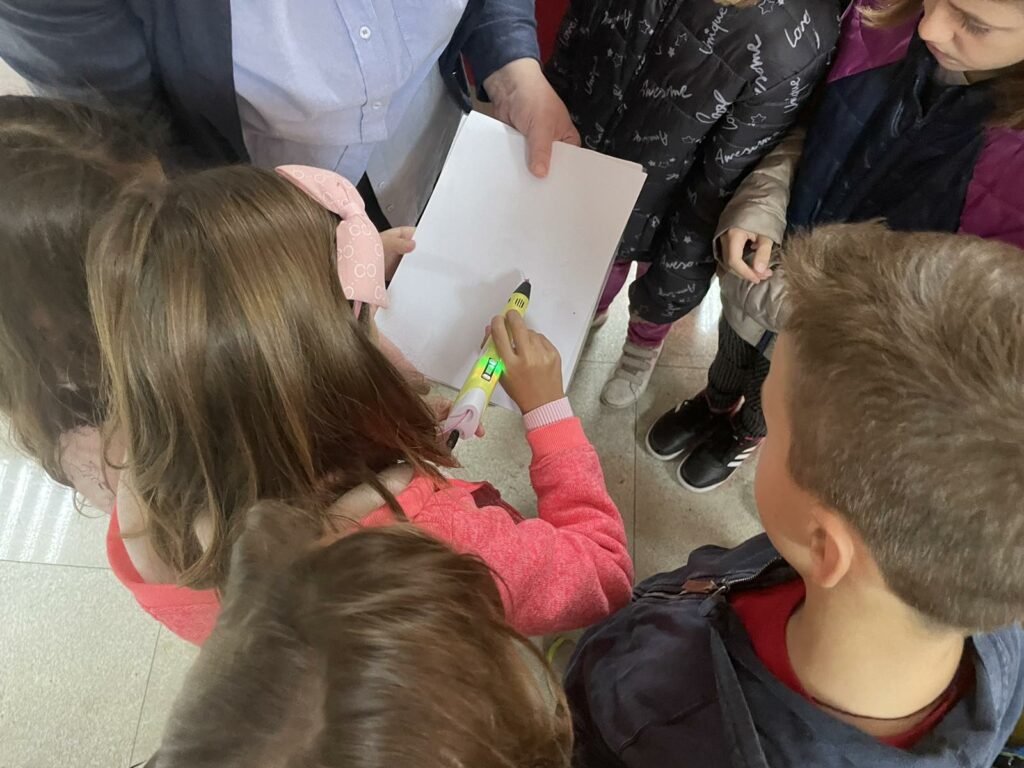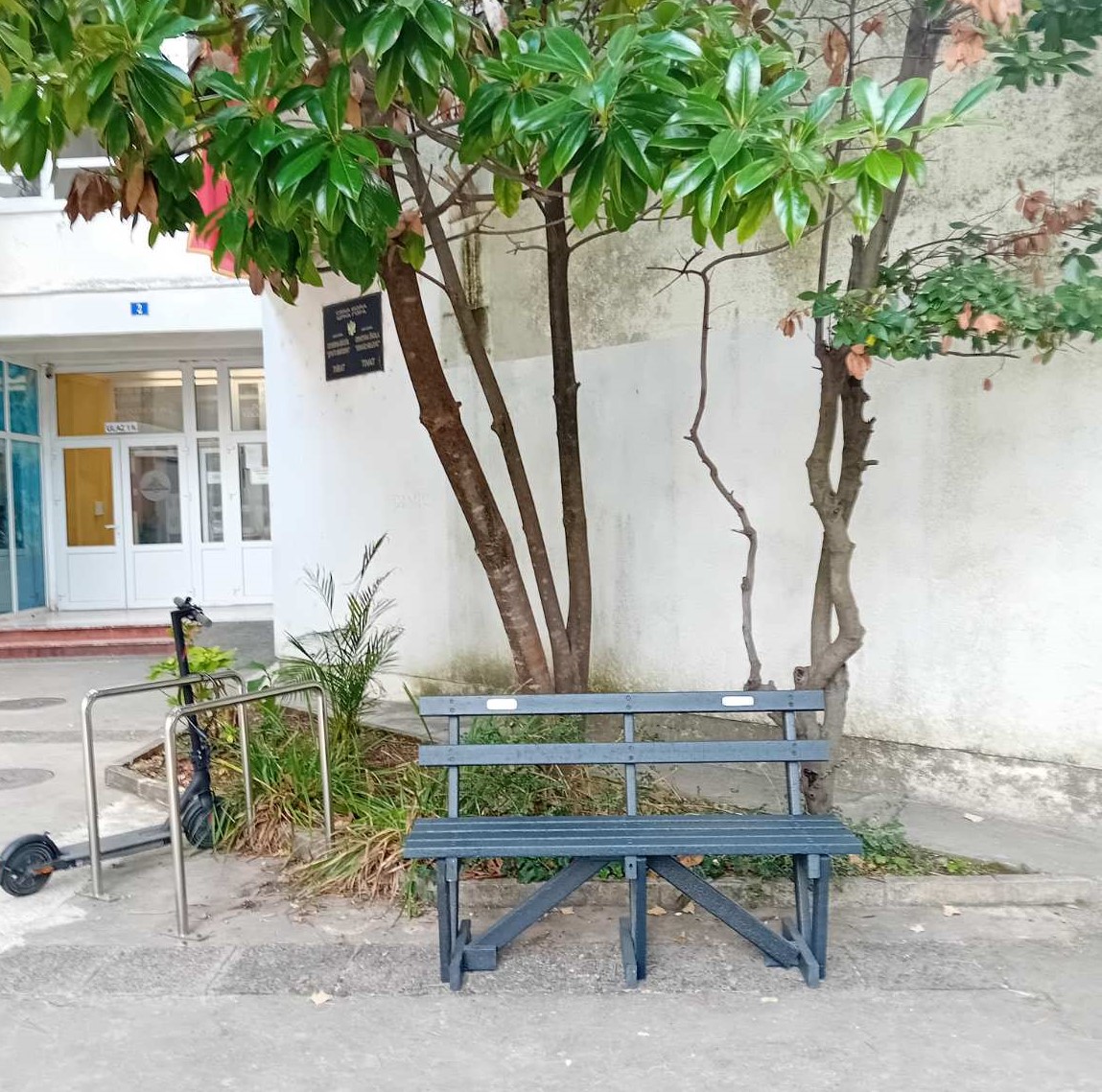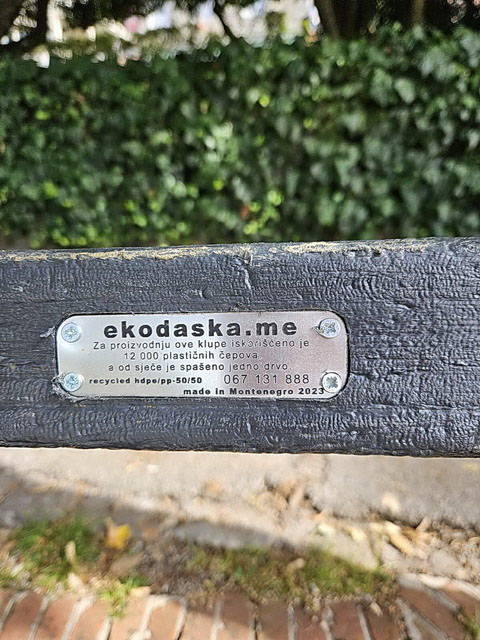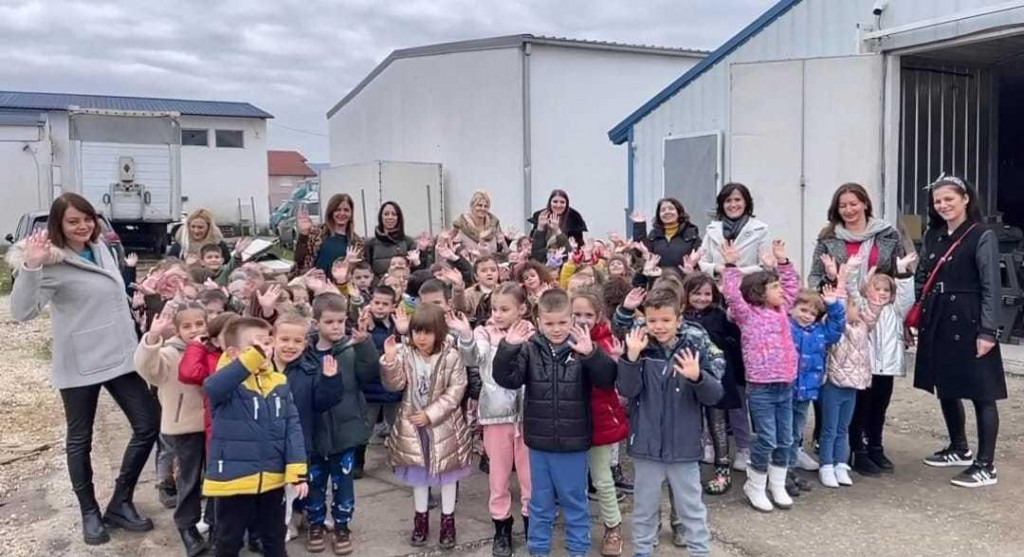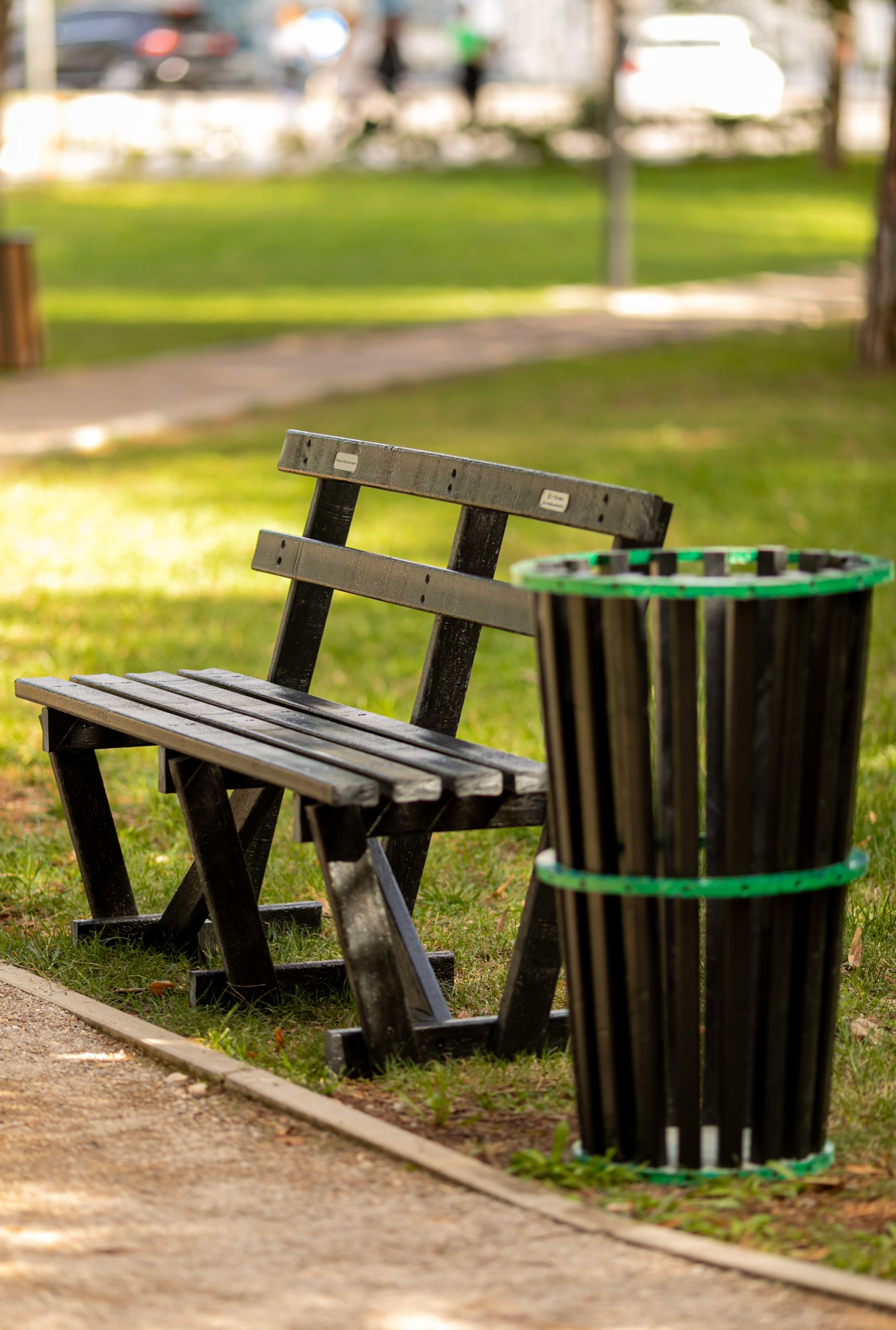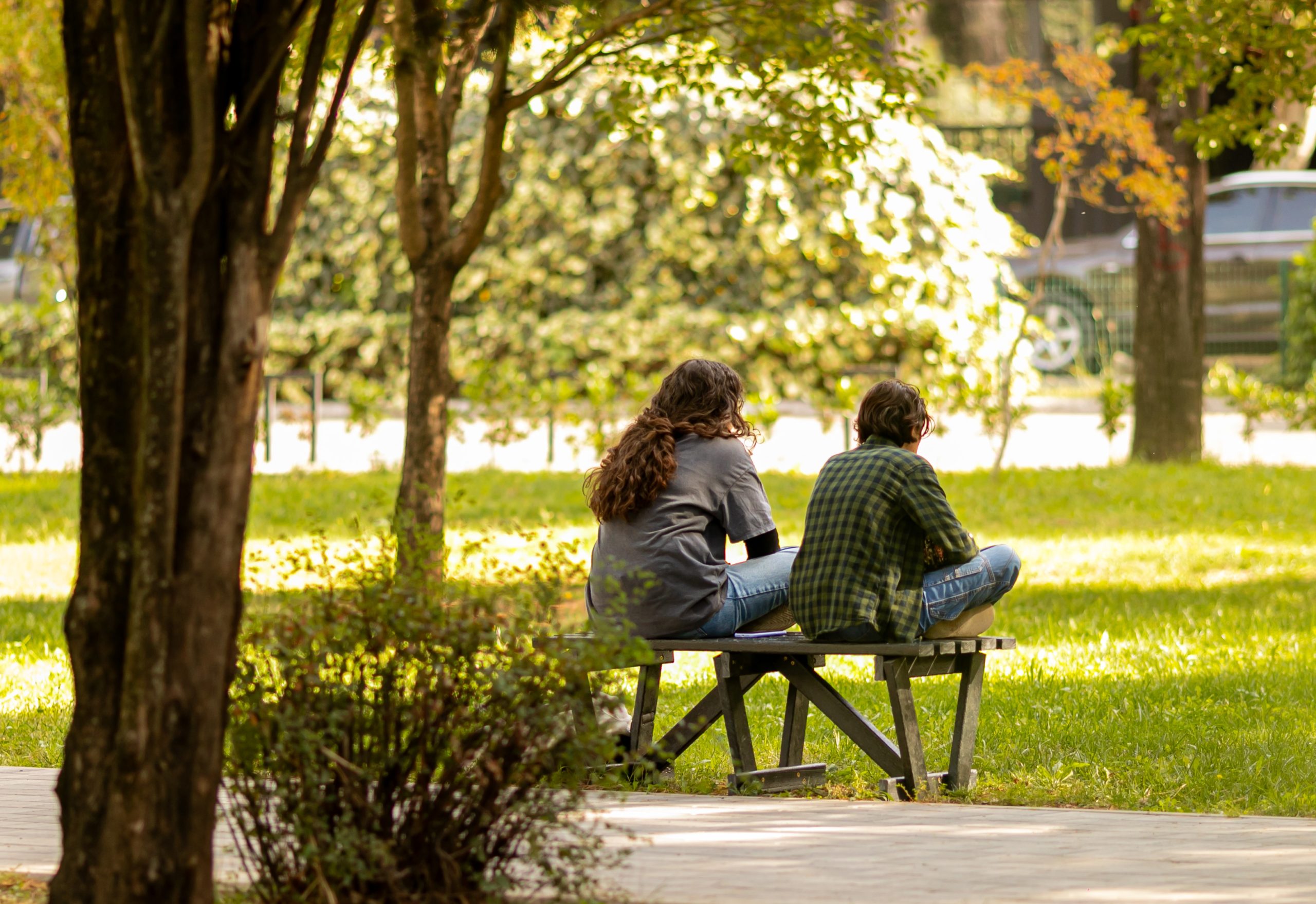Shaping a circular industrial ecosystem and supporting life-cycle thinking
Eko daska (Eco board)
Eko daska: transforming plastic waste into sustainable solutions for communities and public spaces
Eko Daska transforms recycled plastic into durable, eco-friendly benches and garden furniture, promoting sustainability and reducing deforestation. Through community-led recycling campaigns, we engage schools, NGOs, and vulnerable groups to create high-quality, affordable products that benefit public spaces and protect nature. By turning waste into value, Eko Daska fosters a circular economy and raises environmental awareness across Montenegro.
Montenegro
National
It addresses urban-rural linkages
It refers to other types of transformations (soft investment)
Yes
2024-11-20
No
No
No
As a representative of an organisation
Montenegro is known for its breathtaking natural landscapes, from dense forests to pristine coastlines, which form the heart of its cultural identity and ecological wealth. Eko Daska was born out of a deep commitment to protect this natural beauty by addressing two pressing challenges: the growing plastic waste crisis and the deforestation threatening our lush forests. Our mission is simple yet impactful—turn waste into value while safeguarding the very essence of Montenegro’s natural heritage.
We work with schools, vulnerable groups like the Roma-Egyptian community, Ukrainian refugees in Montenegro, NGOs, and local residents to create a network of environmental advocates. By engaging these groups in recycling efforts, we not only empower communities but also inspire collective action to preserve Montenegro’s forests and landscapes.
By replacing wood with recycled plastic in the production of benches and garden furniture, we actively reduce the demand for timber and help protect the forests that define our country's natural beauty.
Transforming plastic waste into sustainable products keeps it out of landfills and the environment, contributing to cleaner rivers, parks, and natural habitats.
Through campaigns, partnerships, and donations, we educate communities about the importance of recycling and the role they play in preserving our environment.
Over the past two years, Eko Daska has prevented the need for hundreds of wooden products, saving countless trees from being cut down.
We’ve recycled over 100 tons of plastic, turning waste into more than 500 benches and pieces of garden furniture for schools and public spaces.
Partnered with over 20 schools, organized plastic collection drives, and donated benches to schools and parks, connecting communities with the tangible benefits of recycling.
We work with schools, vulnerable groups like the Roma-Egyptian community, Ukrainian refugees in Montenegro, NGOs, and local residents to create a network of environmental advocates. By engaging these groups in recycling efforts, we not only empower communities but also inspire collective action to preserve Montenegro’s forests and landscapes.
By replacing wood with recycled plastic in the production of benches and garden furniture, we actively reduce the demand for timber and help protect the forests that define our country's natural beauty.
Transforming plastic waste into sustainable products keeps it out of landfills and the environment, contributing to cleaner rivers, parks, and natural habitats.
Through campaigns, partnerships, and donations, we educate communities about the importance of recycling and the role they play in preserving our environment.
Over the past two years, Eko Daska has prevented the need for hundreds of wooden products, saving countless trees from being cut down.
We’ve recycled over 100 tons of plastic, turning waste into more than 500 benches and pieces of garden furniture for schools and public spaces.
Partnered with over 20 schools, organized plastic collection drives, and donated benches to schools and parks, connecting communities with the tangible benefits of recycling.
Sustainability
Forest Preservation
Community Engagement
Recycling Innovation
Circular Economy
Eko Daska aims to tackle the growing issue of plastic waste by collecting and recycling plastic into durable, high-quality materials. Over the past two years, we have repurposed more than 100 tons of plastic that would otherwise end up in landfills or polluting natural habitats.
By using recycled plastic instead of wood, our project reduces the demand for timber, directly contributing to forest conservation. This helps preserve Montenegro’s natural beauty, vital for both ecological balance and cultural heritage.
Our process exemplifies life-cycle thinking by extending the usability of discarded materials, creating long-lasting products such as benches and garden furniture. This circular model not only minimizes waste but also creates sustainable, affordable solutions for communities.
By organizing plastic collection campaigns in schools and partnering with NGOs and vulnerable groups, Eko Daska fosters environmental awareness and empowers communities to take ownership of sustainability efforts.
Its dual focus on environmental preservation and social inclusion makes it a standout example of sustainability in action.
By using recycled plastic instead of wood, our project reduces the demand for timber, directly contributing to forest conservation. This helps preserve Montenegro’s natural beauty, vital for both ecological balance and cultural heritage.
Our process exemplifies life-cycle thinking by extending the usability of discarded materials, creating long-lasting products such as benches and garden furniture. This circular model not only minimizes waste but also creates sustainable, affordable solutions for communities.
By organizing plastic collection campaigns in schools and partnering with NGOs and vulnerable groups, Eko Daska fosters environmental awareness and empowers communities to take ownership of sustainability efforts.
Its dual focus on environmental preservation and social inclusion makes it a standout example of sustainability in action.
Design should not suffer in sustainable practice, it should adapt.
Our benches and garden furniture are designed to be durable, visually appealing, and seamlessly integrated into both urban and natural environments.
By donating benches and furniture to schools and parks, Eko Daska improves the aesthetic and functional quality of public spaces, encouraging greater use and appreciation of outdoor areas.
Our work extends beyond production. After a beach-cleaning session organized by Eko Daska to remove plastic waste from Montenegro’s stunning coastline, we learned about a volunteer whose grandmother dreamed of having a bench but couldn’t afford one. In recognition of her grandson’s dedication, we donated a specially crafted bench, adorned with a plaque in her name, to honor their family’s connection to sustainability. This act turned a simple object into a lasting symbol of community and care.
Our benches and garden furniture are designed to be durable, visually appealing, and seamlessly integrated into both urban and natural environments.
By donating benches and furniture to schools and parks, Eko Daska improves the aesthetic and functional quality of public spaces, encouraging greater use and appreciation of outdoor areas.
Our work extends beyond production. After a beach-cleaning session organized by Eko Daska to remove plastic waste from Montenegro’s stunning coastline, we learned about a volunteer whose grandmother dreamed of having a bench but couldn’t afford one. In recognition of her grandson’s dedication, we donated a specially crafted bench, adorned with a plaque in her name, to honor their family’s connection to sustainability. This act turned a simple object into a lasting symbol of community and care.
Eko Daska is built on the principle that sustainability should be accessible, affordable, and beneficial for everyone. By addressing environmental challenges through inclusive practices, we create products that are not only eco-friendly but also economically viable and socially impactful.
Our products are significantly cheaper than traditional wooden furniture, making sustainable solutions accessible to schools, communities, and individuals who may otherwise struggle to afford them.
Each bench we produce prevents one tree from being cut down and eliminates a significant amount of plastic waste from nature. These benches last much longer than their wooden counterparts and require almost no maintenance, reducing long-term costs for users.
We unite different groups over the same cause.
Our products are significantly cheaper than traditional wooden furniture, making sustainable solutions accessible to schools, communities, and individuals who may otherwise struggle to afford them.
Each bench we produce prevents one tree from being cut down and eliminates a significant amount of plastic waste from nature. These benches last much longer than their wooden counterparts and require almost no maintenance, reducing long-term costs for users.
We unite different groups over the same cause.
Eko Daska places citizens at the heart of its mission. Local communities, schools, and NGOs actively participate in plastic collection campaigns, recycling workshops, and awareness initiatives. This hands-on involvement ensures citizens see the direct benefits of their actions, fostering ownership of the project’s outcomes. For example, schoolchildren collect plastic that is transformed into benches for their playgrounds, reinforcing their role in sustainability efforts.
The inclusion of marginalized groups, such as the Roma-Egyptian community and Ukrainian refugees, has strengthened the project’s social impact. These groups contribute to recycling efforts and benefit from meaningful opportunities to engage in environmental and community initiatives. This collaboration has empowered citizens, improved public spaces, and created a culture of shared responsibility. The result is a tangible improvement in community awareness, participation, and pride in sustainability.
The inclusion of marginalized groups, such as the Roma-Egyptian community and Ukrainian refugees, has strengthened the project’s social impact. These groups contribute to recycling efforts and benefit from meaningful opportunities to engage in environmental and community initiatives. This collaboration has empowered citizens, improved public spaces, and created a culture of shared responsibility. The result is a tangible improvement in community awareness, participation, and pride in sustainability.
Engagement of Stakeholders at Various Levels
Eko Daska’s success relies on partnerships across local, regional, national, and European levels:
Local Level: Schools, NGOs, and rural communities lead plastic collection efforts and engage in recycling education. Municipalities support by facilitating public space access for donated benches and furniture.
Regional Level: Collaboration with DEPONIJA, Montenegro’s waste management organization, enabled the recycling of over 100 tons of plastic in 2024. This partnership ensures efficiency and scalability.
National Level: Public institutions align Eko Daska with Montenegro’s circular economy and sustainability goals, fostering a supportive framework for growth.
European Level: Knowledge exchange with European networks has enriched the project’s methodology, positioning it as a replicable model aligned with broader sustainability and inclusivity goals.
Eko Daska’s success relies on partnerships across local, regional, national, and European levels:
Local Level: Schools, NGOs, and rural communities lead plastic collection efforts and engage in recycling education. Municipalities support by facilitating public space access for donated benches and furniture.
Regional Level: Collaboration with DEPONIJA, Montenegro’s waste management organization, enabled the recycling of over 100 tons of plastic in 2024. This partnership ensures efficiency and scalability.
National Level: Public institutions align Eko Daska with Montenegro’s circular economy and sustainability goals, fostering a supportive framework for growth.
European Level: Knowledge exchange with European networks has enriched the project’s methodology, positioning it as a replicable model aligned with broader sustainability and inclusivity goals.
Eko Daska integrates multiple disciplines:
Environmental science: ensuring efficient recycling processes and minimizing waste.
Industrial design: creating functional, durable, and aesthetically pleasing products.
Community engagement: educating and mobilizing citizens to participate in sustainability initiatives.
Circular economy: establishing a model that turns waste into valuable, long-lasting products.
Environmental science: ensuring efficient recycling processes and minimizing waste.
Industrial design: creating functional, durable, and aesthetically pleasing products.
Community engagement: educating and mobilizing citizens to participate in sustainability initiatives.
Circular economy: establishing a model that turns waste into valuable, long-lasting products.
Eko Daska stands out by linking waste management directly to community well-being. Unlike typical recycling initiatives, the project transforms plastic waste into functional and affordable products that directly benefit public spaces. Each bench represents a tree saved and waste diverted from nature, with minimal maintenance required. The combination of circular economy principles, community involvement, and durable, aesthetically pleasing designs sets Eko Daska apart as a model for sustainability with tangible societal impact.
Eko Daska’s methodology rests on three pillars: Community engagement, recycling and production, impactful design.
Eko Daska’s model can be easily replicated in other regions due to its adaptable methodology. Key transferable elements include:
The community-driven plastic collection process.
Partnerships with waste management organizations for efficient recycling.
Durable product design that reduces costs and maintenance.
Educational campaigns that raise awareness and encourage participation.
The simplicity and scalability of this approach make it a viable solution for diverse contexts, from urban centers to rural areas.
The community-driven plastic collection process.
Partnerships with waste management organizations for efficient recycling.
Durable product design that reduces costs and maintenance.
Educational campaigns that raise awareness and encourage participation.
The simplicity and scalability of this approach make it a viable solution for diverse contexts, from urban centers to rural areas.
Eko Daska addresses global issues like plastic pollution, deforestation, and social inequality through localized action:
Plastic pollution: recycling over 100 tons of plastic annually prevents waste from polluting ecosystems.
Deforestation: replacing wood with recycled plastic directly conserves trees and biodiversity.
Social inequality - engaging marginalized groups, such as Ukrainian refugees and the Roma-Egyptian community, fosters inclusion and empowerment.
By addressing these challenges locally, Eko Daska creates scalable solutions with global relevance.
Plastic pollution: recycling over 100 tons of plastic annually prevents waste from polluting ecosystems.
Deforestation: replacing wood with recycled plastic directly conserves trees and biodiversity.
Social inequality - engaging marginalized groups, such as Ukrainian refugees and the Roma-Egyptian community, fosters inclusion and empowerment.
By addressing these challenges locally, Eko Daska creates scalable solutions with global relevance.
Products created - more than 500 benches and garden furniture pieces produced from 09/2023 to 09/2024 with 150 tons of plastic recycled.
Environmental impact - each bench saves one tree, reduces waste in nature, and requires minimal maintenance.
Social impact - collaborated with schools and held over 200 hours of classes on recycling and sustainability awareness. Organized 12 nature cleanups in the past two years and held 10 free masterclasses for 3D modeling and furniture production. Over 300 children have directly participated in our Čini dobro-recikliraj! initiative.
Community contributions - donated over 100 products to schools, parks, and public spaces, directly benefiting local communities. Worked and volunteered in various community causes, demonstrating active engagement.
Compassionate action - adopted one dog and two cats, reflecting our holistic commitment to bettering the environment and society.
Eko Daska’s results demonstrate its power to create lasting environmental, social, and economic benefits, setting a benchmark for sustainable innovation.
Environmental impact - each bench saves one tree, reduces waste in nature, and requires minimal maintenance.
Social impact - collaborated with schools and held over 200 hours of classes on recycling and sustainability awareness. Organized 12 nature cleanups in the past two years and held 10 free masterclasses for 3D modeling and furniture production. Over 300 children have directly participated in our Čini dobro-recikliraj! initiative.
Community contributions - donated over 100 products to schools, parks, and public spaces, directly benefiting local communities. Worked and volunteered in various community causes, demonstrating active engagement.
Compassionate action - adopted one dog and two cats, reflecting our holistic commitment to bettering the environment and society.
Eko Daska’s results demonstrate its power to create lasting environmental, social, and economic benefits, setting a benchmark for sustainable innovation.

